CHECK IT OUT! APASWE No. 8 (2013-2015)
CHECK IT OUT! APASWE
No. 8 (2013-2015) from President Office December, 2014
Social work in Asia Pacific
a Cross border Collaboration project between
the School of Social Work of the National Institute of Social Development Sri Lanka and the Department of Social Work, Faculty of the Health Sciences, Tokai University in Japan
Mrs. Varathagowry Vasudevan
Senior Lecturer in Social Work
Coordinator, Collaborative Project between Tokai University and NISD
Sri Lanka
Introduction
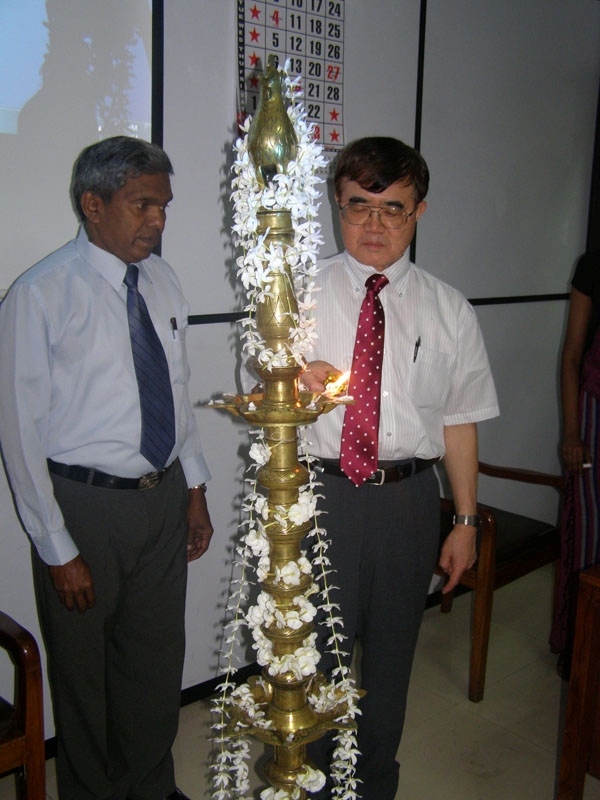
The Concept of 'Collaboration' may be interpreted to mean- working together to achieve a goal. Within a country or across borders collaboration is under taken as a recursive process where two or more people or organizations work together to realize shared goals. Cross-Border Collaborative project is a subset of Educational internationalization undertaken across national jurisdictional borders. It can be part of development cooperation projects, and/or academic exchange programs. Cross Border Collaborative research is said to provide the wherewithal for solving creatively the complex problems of research and learning through
a) social interaction
b) deepened learning
c) interpersonal support &
d) synergy
Role of APASWE
Asia Pacific Association for Social Work Education (APASWE) is promoting collaboration between social work educational intuitions/ schools/ universities in social work education across Asia Pacific countries. When the 21st APASWE conference was held in Tokyo, Japan, Conference organizers facilitated participants from developing countries to receive conference scholarship by linking schools of social work in Japan. A social work educator of the National Institute of Social Development was given this rare opportunity by inviting to deliver a guest lecture to social work students of Tokai University, Japan. This APASWE initiated conference scholarship was to network with social work faculties in both countries and thereby promote long term social work collaboration between both countries
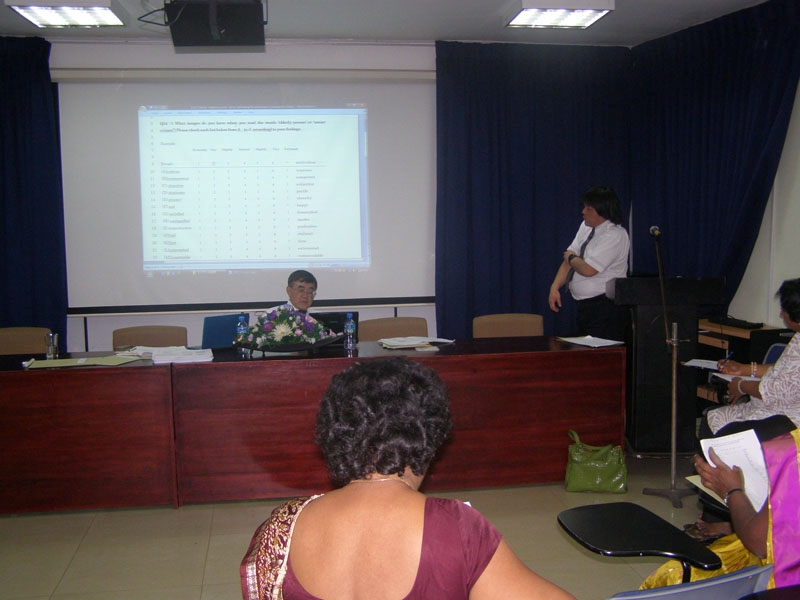 This collaboration was between social work educational institutions in Sri Lanka namely the National Institute of Social Development and the Department of Social Work, Faculty of the Health Sciences, Tokai University Japan The formal memorandum-of-understanding (MOU) was signed to commit the respective departments in the two countries towards closer co-operation in work related study tours of faculty and students and collaborative research
This collaboration was between social work educational institutions in Sri Lanka namely the National Institute of Social Development and the Department of Social Work, Faculty of the Health Sciences, Tokai University Japan The formal memorandum-of-understanding (MOU) was signed to commit the respective departments in the two countries towards closer co-operation in work related study tours of faculty and students and collaborative research
The Collaborative activities implemented to date are;
- Opportunity given to undertake guest lectures for social work students in both countries
- Study tour by faculty in both countries
- A Collaborative Research on Consciences of supporting one’s older parents, the level of concern about aging population in the country and the image towards the elderly of the University Students was undertaken in Japan and Sri Lanka.
- Research seminars on the research project in Tokai University, Japan
- Seminar held on Social Welfare Service Delivery at the National Institute of Social Development , Sri Lanka
- A Round Table Conference held on Community based Elder Care at the NISD, Sri lanka
The beneficial outcomes of such collaboration
- sharing of knowledge, skills and techniques in social work practice
- Joint development of skills
- transfer of knowledge or skills
- cross-fertilisation of ideas leading to the generation of new insights or perspectives
- provided intellectual companionship
- improvement of potential visibility of scholars and researches
- Networking the researchers into a wider network of contacts in the scientific community.
- potential visibility of the work and increased specialization in demand
- Significance of interdisciplinary studies enhanced
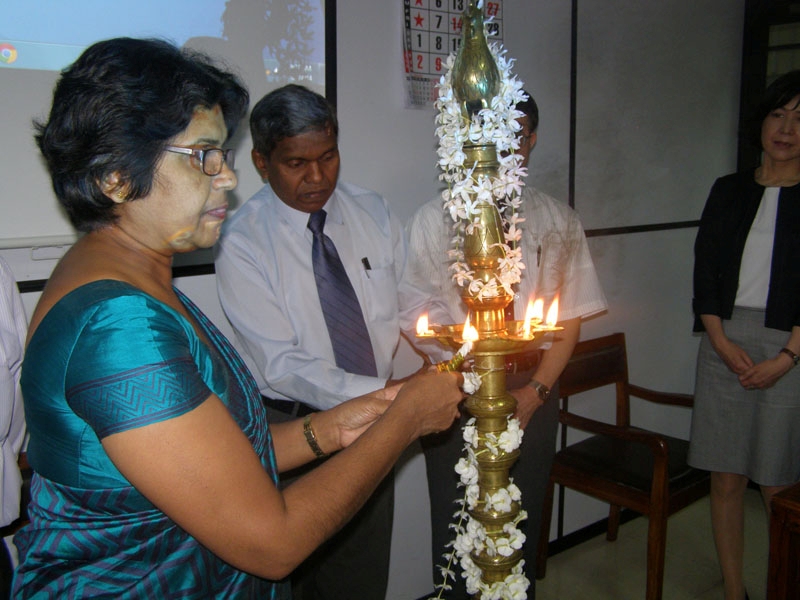 |
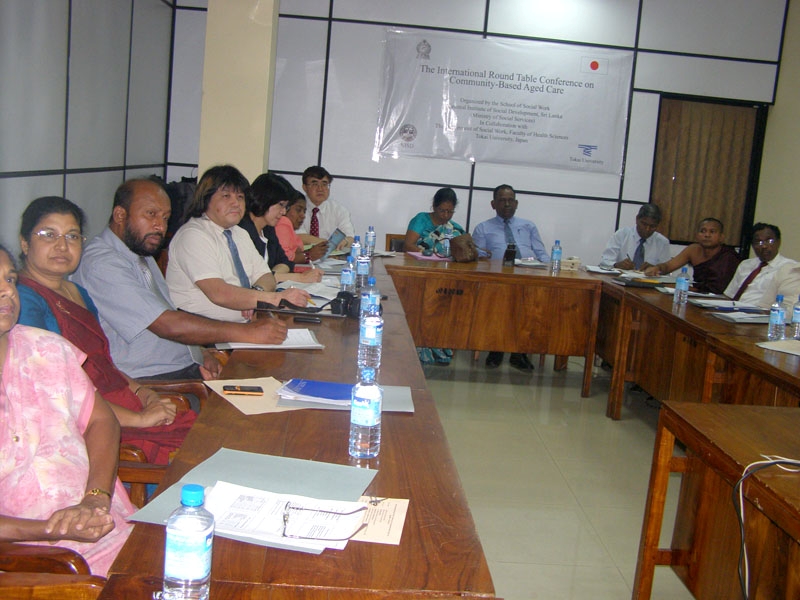 |
The advantages experienced are
- gave participants an overall insight into the situational / institutional environments methods and practices maintained in partner countries
- Facilitated intellectual and cultural exchange between nations that foster many new opportunities such as the development of new physical and virtual modes of delivery.
- created many new opportunities for cross border academic collaboration
- helped to strategize educational alliances between countries and regions,
- helped to develop human resource and institutional capacity
- Facilitated development of leadership qualities team building and communication skills
- created opportunities for innovation, creativity and cultural understanding
- facilitated the growth , tolerance, and progress in many relevant spheres particularly vital for the intellectual and cultural exchange between nations
- enabled capacity-building through cross-border collaborative activities,
- Provided the rare opportunity for Sri Lanka and Japan (with significant cultural differences )to learn about each other as increased knowledge leads to greater understanding.
- facilitated the conduct of Academic dialogue, as a special type of diplomacy, in place of the conventional political means which have largely failed to improve foreign relations of nations.
- provided the opportunity to initiate the building of a global future through research and innovative practices
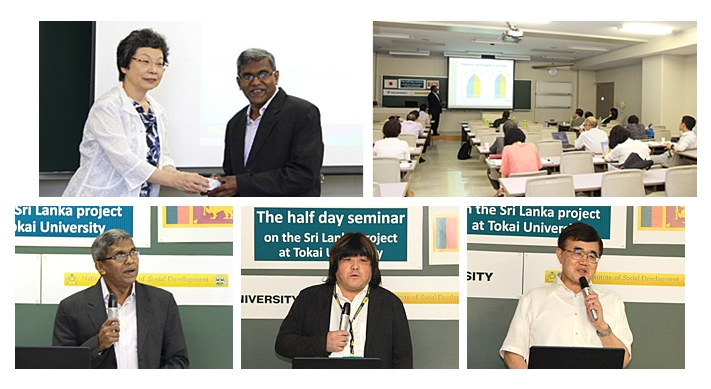
In conclusion, it may be surmised that APASWE should continue to
- facilitate more of such networking among the schools of social work not only within Asia Pacific but globally to promote learning to build a strong cross border infrastructure for research and innovative practices
- Hits: 2617


